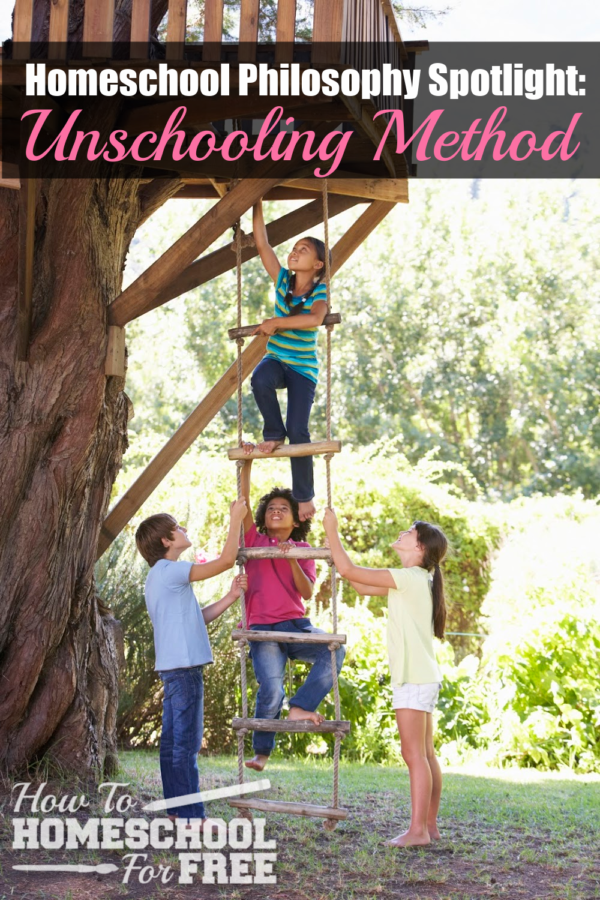When I first heard this term, I thought it was a joke. My knee-jerk reaction was that it sounded like non-schooling; a kid’s dream, right? Well, it turns out, there’s quite a bit more to it.
So, what is unschooling?
In basic terms, unschooling is a method of learning that does not follow a curriculum, but instead allows a child’s natural interests to guide the parent in what to study. Marla Taviano puts it this way in her ebook; An Unschooling Manifesto: Unschooling: student-led, interest-driven, mostly-fun, super-meaningful education that happens at home (and/or any other place along the way). Parents and other adults are valuable facilitators, but instead of lecturing, they’re sharing from experience and often learning right alongside the kiddos. There’s no set curriculum, no list of things the kids need to know, no replication of school at la casa. Creativity and innovation and community (and all the important stuff in life) are encouraged and nurtured. Kids are celebrated for who God created them to be and inspired to become the very best grown-up version of that unique and amazing person. Unschooling families think school cramps their style; childhood’s too short to spend cooped up in a classroom; and learning happens best in the context of real life. And real life starts right this very minute.
What do you do when you want to learn about something?
You look it up, right? That’s what I do. I use Google, YouTube, and Pinterest and instantly I have access to information. Or, I find a book that explains the topic or question and run to my local library or Half Priced Books. The same concept is the basis of unchooling. It’s talking with your kids in detail about their interests, asking questions, and pursuing the answers together using whatever is at your disposal.
Unschooling is about creating a lifestyle of learning.
It’s about learning to learn. It’s about following what sparks your child’s curiosity most and diving deep. When you unschool, “school” and life begin to blend seamlessly together and, before you know it, you’re seeing learning opportunities in everything around you. Sometimes, you have to leave the confines of curriculum and lesson plans to find out just how fun learning can really be. And in this new unschooling lifestyle of learning, you’re free to explore all the nuances of the things your child is really interested in. This leads to learning from even the most ordinary things: Why does toothpaste foam? What role does gravity play in the health and function of my body? How do bridges work? When was my city founded? Who first discovered cement?
Following your child’s interests may sound like a way to just play video games all day but if you really dive deeper into what their interests are, you can find a wealth of knowledge just waiting to be absorbed. And because they’re interested in it, your child will internalize it like no other.
So how do you actually do it?
1.Encourage questions and be ready to research the answers.
If you can’t research them right away, write them down to look up later. These questions are the jumping-off point for engaging conversation and further research.
2. Figure out what your child is really interested in and dig deep.
Dissect these interests. Think about them through the lens of what they have to teach and make a list of those topics. You may be surprised how quickly the list grows. Check out this Unschooling With A Purpose binder if you want to be intentional with your interest-led unschool.
3. Practical skills count as learning, too
Unschooling is about teaching your kids to be citizens of society now instead of being students now and citizens later. That means teaching them practical skills that they will use in the future, like how to cook, do laundry, keep house, do yard work, maintenance appliances and cars, pay bills and budget money, the list is endless!
4. Make resources available.
Once you’ve figured out what really ignites your child’s curiosity, make as many related resources as you can available on that subject. Always provide access to plenty of books, videos, podcasts, classes, games, field trips, and anything else that you need to learn more about that topic.
Look for classes on Outschool. Join a local homeschool group. Visit the library often, not just for books, but also everything else they have to offer.
5. Let exploration and discovery happen naturally.
Don’t force things. Forcing the process can instantly turn something fun into an unpleasant chore.
6. Never stop looking for new things to investigate.
Dive deep but don’t pigeonhole. This helps keep things fresh and prevents boredom. You can always return to previous topics later. You may even find that the new themes you have investigated bring renewed perspectives and ideas to those older topics.
7. Don’t forget the importance of play and imagination.
We adults sometimes think that play is only recreation, but play is a major way kids learn about and process the world around them. We must build in time for play and allow play to “count”. Even if your children are older, they will still use imagination and daydreaming to learn and process information. So don’t think this step is just for the little ones!
8. Stop thinking of yourself as a teacher and start thinking of yourself as a facilitator or guide.
Instead of putting the emphasis on what you teach them, emphasize what (and how) they are learning. Follow their interests like bread crumb trails, providing supplemental resources, experiences, and discussions wherever possible. You’re there to guide them on their learning journey, facilitating the process, and supplementing wherever you can.
9. HAVE FUN!
This is the most important tip I can give you. Make room for fun in your learning. Plan field trips. Do hands-on activities. Go for a nature walk. Read. Play. Explore. You will be surprised to find that you will learn as much (if not more) than your kids as you make this journey together.
Lots Of Options
There are several methods or styles of homeschooling and figuring out which one works for your family can take some trial and error, but the journey is so worth it! And the time with your kids is priceless!
Unsure where to start? Take our Homeschool Philosophy Quiz to get an idea what style suits you best.
Check out the other methods in our Homeschool Philosophy Spotlight Series.
***Make sure to join our How to Homeschool for Free Facebook Support Group for daily encouragement in your homeschooling journey!***







